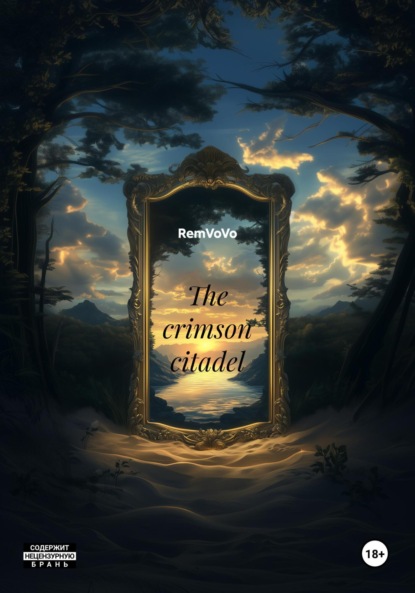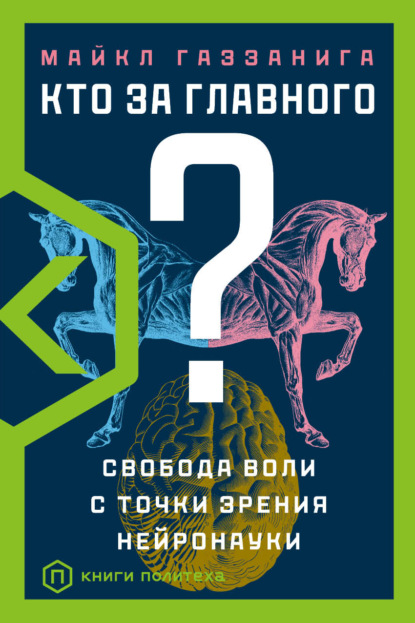The crimson citadel

- -
- 100%
- +
Her initial, animal terror had receded, burned away by a cold, simmering anger. This was an indignity. This was chaos. Her mind, starved of visual stimuli, began to rebel, constructing order from the nothingness. She analyzed the sounds, the smells. The weeping girl was to her left, near what Elara guessed was the door based on the slight draft. The shivering boy was in the far corner. The silent ones were a mystery. Potential threats or potential allies? The thought was automatic, a chess piece moved on a board only she could see, a pathetic attempt to assert control in a situation where she had none.
They gathered us, she thought, her internal voice laced with a venom that was better than despair. They culled us. Like livestock. Why? For what? The image of the wolf-creature dissolving into ash flashed behind her eyes. Was that their fate? To be judged and found wanting, erased with a gesture?
The pride that had been shattered in the field was beginning to reform, not as a shield, but as a weapon. It was brittle and sharp, and it cut her from the inside, but it was better than the alternative—dissolving into a sobbing heap in the corner.
A new sound pierced the oppressive silence. Not from within the cell, but from without. A slow, rhythmic, metallic scraping. Like a giant blade being dragged along stone. It was getting closer.
The weeping girl’s cries cut off abruptly, replaced by a terrified whimper. The boy’s shivering intensified. Elara’s heart, which had settled into a frantic but steady rhythm, began to hammer again. She turned toward the door, her body tensing.
A slit of light appeared at the base of the door—a dull, orange glow. Then, with a groan of protesting iron, the door swung inward.
A figure stood silhouetted in the doorway, holding a torch that burned with a sullen, smoky flame. It was not one of the silent riders. This creature was shorter, stockier, encased in crude, black iron armor that was pitted and scarred. Its face was hidden behind a featureless helm, but two pinpricks of red light glowed from within the eye slits. In its other hand, it held a massive, cleaver-like sword, the source of the scraping sound—the tip dragged along the floor as it walked.
It was a jailer. A brute. Something meant for intimidation and violence.
It didn’t speak. It simply gestured with its torch-bearing hand, a jerky, impatient motion for them to come out.
Nobody moved. Frozen by fear.
The jailer took a heavy step into the cell, the cleaver scraping loudly. It reached out a gauntleted hand and grabbed the weeping girl by the arm, yanking her to her feet. She let out a shrill cry.
Something in Elara snapped. The action was so brutish, so unnecessary. It offended her on a fundamental level. Before she could stop herself, the words were out of her mouth, her voice hoarse from disuse but sharp as a whip crack.
“She understands ‘come out’. We all do. You don’t need to manhandle her.”
The pinpricks of red light swung toward her. The pressure of its gaze was physical, a weight of pure menace. The girl stared at Elara with wide, terrified eyes, as if she’d just signed both their death warrants. Perhaps she had.
The jailer took a step toward her, its bulk blocking the light from the doorway. It leaned in, and she could smell the rust on its armor and something older, like grave dirt. It raised the cleaver slowly, the filthy edge hovering near her face.
Elara didn’t flinch. She met the red lights, her chin lifted, every ounce of her defiance burning in her gaze. She would not cower. It was the only thing she had left.
A long, tense moment stretched out. Then, with a grunt that sounded like grinding stones, the jailer lowered the cleaver. It made that same impatient gesture toward the door. This time, the message was clear: Move. Now.
One by one, they filed out of the cell. The jailer fell in behind them, its heavy, scraping footsteps herding them down the torch-lit corridor. They passed other doors, all identical, all shut. The air grew colder, and a new sound reached them—a low, rhythmic chanting, coming from somewhere deep below.
The corridor ended at a vast, circular chamber. It was the source of the chanting. Dozens of other youths were already there, standing in ragged, terrified groups, all bound at the wrists like them. They were a disparate lot—some pale and fine-boned with hair the color of moonlight, others with skin of deep umber or mossy green, some with extra joints in their fingers, others with eyes that glowed faintly in the dim light. All stolen. All from worlds not their own. The sight was somehow more crushing than being alone. This was an industry. A system. They were a crop.
In the center of the chamber stood a massive, rough-hewn block of dark stone, as tall as a man. Its surface was covered in intricate, spiraling channels that converged into five deeper grooves at its base, each leading to a large, black iron bowl. The stone pulsed with a faint, internal light, a slow, sickly heartbeat of pale green.
Standing around the stone were five figures, different from the jailer and the riders. They wore dark, elegant robes, their faces sharp and severe, their eyes missing nothing. These were the faculty. The masters of this place. Their expressions ranged from bored curiosity to cold assessment. They were butchers inspecting the herd.
At the head of the stone stood a man who could only be the Headmaster. He was tall and gaunt, his face a mask of severe, ageless lines. His hair was silver, pulled back tightly from a high forehead. His eyes were the color of a winter sky, and just as warm. He held a long, black dagger with a serrated edge that seemed to drink the torchlight.
“Welcome,” his voice cut through the chanting, calm and resonant, filling the vast space without effort. It was a terrible voice, full of a quiet, absolute authority that demanded obedience. “To the Obsidian Citadel. You have been reaped. You have been brought. Your past lives are cinders. Your futures are unwritten. Here, you will be tested. Here, you will be sorted. Your potential will be measured not by your desire, but by your essence. By your blood.”
He raised the black dagger. “The Sanguine Tithe will determine your House. Your path. Your worth. Resistance is pointless. Fear is inevitable. Embrace the cut. Let the Citadel see what you are.”
The ritual began. One by one, the jailers dragged the terrified students forward. The Headmaster would take their bound wrists, make a quick, deep slash across their palm, and force their bleeding hand onto the top of the stone.
The reactions were immediate and violent.
A boy with bark-like skin pressed his hand down. The stone flared a dull, earthy brown. The blood flowed down the channels and into the second bowl. The Headmaster announced, “House Ossis.” A jailer roughly pulled him away toward a group under a banner bearing a symbol of a skeletal hand.
A girl with gossamer wings trembled as her blood was spilt. The stone glowed with a soft, pinkish light. Her blood trickled into the fourth bowl. “House Corde.” She was led away, sobbing with relief.
A hulking brute with tusks jutting from his jaw snarled and fought, but his blood, when it touched the stone, ignited it in a brief, violent burst of orange-red flame, flowing into the fifth bowl. “House Ignis.” He was clubbed into submission and dragged off.
Elara watched, her stomach churning, her mind racing. Five houses. Bone, Heart, Inferno. That left two. The blood flowing into the first bowl was accompanied by a deep, shadowy ripple in the stone, a darkness so profound it hurt to look at. “House Umbra,” the Headmaster would say, his voice dipping into a tone of grim respect. Those students, few in number, were met with a wide berth and fearful glances.
The third bowl collected blood that made the stone hiss and emit a faint, acrid green vapor. “House Venenum.” These students had a cruel, sharp look to them, even in their fear.
It was efficient. It was brutal. It was a production line of damnation.
Finally, it was their cell’s turn. The weeping girl went first. Her blood produced a faint, flickering pink light. House Corde. She almost collapsed with relief as she was led away. The shivering boy was next. His blood sparked and sizzled—House Ignis. He looked stunned. The two silent ones were a surprise; one went to Venenum, the other, with a blood that sank into the stone without a trace, to Ossis.
Then it was Elara’s turn.
The jailer shoved her forward. The Headmaster’s wintery eyes appraised her. She saw no interest there, only the clinical gaze of a scientist about to dissect a specimen. He took her bound wrists. His grip was like ice. He didn’t look at her as he positioned the black, serrated dagger.
The pain was sharp and clean as he drew the blade across her palm. She didn’t cry out. She bit the inside of her cheek until she tasted blood, her eyes fixed on the stone.
He forced her bleeding hand down onto the cold, rough surface.
For a second, nothing happened. The stone remained inert, her blood a simple, dark red smear against the grey rock. A faint, almost imperceptible frown touched the Headmaster’s lips. Had it failed? Was she nothing? The thought was somehow more terrifying than any of the other outcomes.
Then, it began.
A deep, thrumming vibration started in the core of the stone, shaking the very floor. The channels began to darken, then blacken, as if a corruption was spreading from her hand. The pale green heartbeat within the stone flickered, choked, and then was snuffed out entirely.
A sound began to emanate from it—a low, rising hum that quickly escalated into a piercing, psychic shriek that felt like needles being driven into her temples. The torch flames in the room guttered and bent toward the stone, as if being sucked into a void.
The blackness from the channels erupted. It wasn’t a light. It was the opposite of light. A perfect, absolute blackness that shot up from the stone in a column, so dark it seemed to tear a wound in the very air of the chamber. It didn’t illuminate; it devoured the light around it. The temperature plummeted. The air grew still and heavy.
Within the column of blackness, tiny points of cold white light appeared, like distant, dead stars. It was a shard of the void itself, a piece of the nothingness between worlds, made manifest in the heart of the Citadel.
The shriek faded, replaced by a silence more profound than any that had come before. The entire chamber was frozen, every eye fixed on the terrifying phenomenon.
Elara’s blood was not flowing into any of the bowls. It was being sucked into the stone, and the void was pouring out.
The Headmaster’s cold composure finally cracked. His eyes were wide, not with fear, but with a blazing, avaricious hunger. He stared at the void, then at her, his gaze stripping her bare, seeing not a girl, but a tool. A weapon. A key.
His voice, when he spoke, was a whisper that carried to every corner of the dead-silent room. It was filled with a reverence usually reserved for gods or monsters.
“House Umbra.”
The words hung in the air. The jailer who had dragged her there took a step back. The other faculty members exchanged sharp, unreadable glances.
The jailer assigned to the Umbra group, a larger, more silent brute than the others, approached her. He didn’t shove her. He simply gestured for her to follow, his body language cautious, almost… wary.
As she was led away from the stone, her hand throbbing, the Headmaster’s hungry eyes followed her every step. She had wanted to be special. She had wanted to be more than the grey nothingness of her old life.
She had gotten her wish.
She was special. She was a void. And the look in his eyes promised that her new life would be infinitely more terrifying.
Chapter 4: The Prince of Nothing
The walk to the Umbra common room was a silent, chilling procession through the bowels of the Citadel. The brute leading her didn't speak, his heavy armor clanking a monotonous rhythm against the stone floors. The corridors here were different from the rough-hewn prison level. They were smoother, older, the walls carved from a single, continuous vein of obsidian that reflected the torchlight in distorted, funhouse mirror shards. The air grew colder with every step, a dry, ancient cold that seeped into the bones. It was the cold of deep space, of forgotten tombs.
Elara cradled her injured hand against her chest. The cut had stopped bleeding, but it throbbed with a deep, persistent ache. The memory of the stone, of that column of devouring blackness, played on a loop behind her eyes. The Headmaster’s hungry stare was burned into her soul. House Umbra. The words were a sentence. The wary caution of the jailer was a clearer indicator of her new status than any banner could be. She was not safe here. She was… other, even among the others.
They arrived at a doorway that was not a door. It was a sheer, polished wall of obsidian, seamless and flawless, reflecting their approaching forms like a dark mirror. The jailer didn’t break stride. He simply walked directly into the reflection. The surface rippled like black water, swallowing him without a sound.
Elara hesitated, staring at her own wide, smoke-quartz eyes in the impossible doorway. She looked pale, her dark hair a chaotic storm around her face, her expression a carefully constructed mask of defiance over raw terror. Taking a shuddering breath, she stepped forward.
The sensation was like being plunged into ice water and emerging instantly, dry. There was a moment of absolute sensory deprivation, a silence and darkness so complete it was a physical blow, and then she was through.
The common room of House Umbra stole the breath from her lungs.
It was not a room. It was a geode the size of a cathedral. They stood on a narrow walkway of polished jet that ringed a vast, yawning chasm. The walls were not stone but a continuous crust of immense, perfectly formed black crystals, each one the size of a tree trunk, jutting inward at violent, beautiful angles. They glimmered with an internal, captured light, a faint violet-and-silver luminescence that provided the only illumination, casting long, dramatic shadows that danced and twisted. The air hummed with a low, resonant frequency, the sound of ancient, dormant power. Far below, in the depths of the chasm, a faint, silver mist swirled, hinting at impossible depths.
The walkway led to a series of natural landings and alcoves carved into the crystal walls, each furnished with low, dark divans and tables of polished bone. There were perhaps twenty other students scattered throughout the cavernous space, but they were mere whispers of movement in the overwhelming grandeur. They spoke in hushed tones, their voices swallowed by the immense acoustics. All of them were pale, their clothing dark, their eyes sharp and watchful. They turned as one as she entered, their gazes not hostile, but intensely, unnervingly assessing. She was a new piece on their board.
The jailer gave her a final, almost imperceptible shove forward onto the main walkway and then turned and vanished back through the liquid obsidian doorway, leaving her alone.
Elara stood frozen, feeling smaller and more exposed than she ever had in her life. The pride she’d mustered in the cell and before the Tithe Stone felt like a childish costume here. This place demanded a different kind of strength, a stillness, a comfort with the void that she did not possess.
She forced her feet to move, walking slowly along the jet path, her senses on high alert. The other students watched her pass, their expressions unreadable. She felt their attention like a physical touch, cold and probing. She kept her chin high, her face a mask of cold indifference, mimicking their demeanor. It was the only defense she had.
She found an empty alcove slightly apart from the others and sank onto a divan that was harder than it looked. She focused on her breathing, on the throb in her hand, on anything to keep the rising tide of panic at bay. Observe. Adapt. The mantra repeated in her head. This was just another hostile environment. She had survived high school, university, the soul-crushing emptiness of her old life. She could survive this.
A shift in the room’s energy made her look up.
The air near the center of the main walkway thickened, the shadows coalescing, drawing in on themselves like a reverse explosion. From the pool of concentrated darkness, a figure resolved itself, stepping forth as if he’d simply been a part of the gloom that had decided to take shape.
Kaelan.
He was taller than she remembered from the fleeting, chaotic glimpse in the field. His shoulders were broad under a simple, black tunic of a fine, unfamiliar material. His pants were tucked into knee-high boots scuffed from use. His pale skin was a stark canvas for the intricate, silvery scars that traveled up his forearms and, she could now see, curled up the side of his neck like vines of frozen lightning. They pulsed with a faint, rhythmic light, a heartbeat of contained power.
But it was his face that held her captive. It was all sharp angles and severe lines, brutally handsome and utterly devoid of warmth. And his eyes… His eyes were pools of absolute obsidian. No white, no iris, just endless, depthless blackness. They were windows into the void she herself had somehow summoned.
He didn’t look around. He didn’t need to. His presence commanded the entire geode. The hushed conversations died completely. The other students stilled, their postures shifting into something between respect and fear. He was the unspoken king of this dark court.
His head turned slowly, those black eyes scanning the room, passing over the other students as if they were furniture. They moved over her alcove, paused for a fraction of a second, and then continued on. There was no recognition, no curiosity. Nothing.
He began to walk toward a larger landing that seemed to be a focal point of the room, a place with a larger divan and a table holding a carafe of something dark and a single, black crystal goblet. As he passed her alcove, he was close enough that she could smell him—a clean, cold scent like ozone after a storm and freshly turned earth.
One of the other students, a boy with hair the color of white ash and a cunning glint in his eye, stepped forward, bowing his head slightly. “Prince Kaelan. The new tithe from the lower realms…” he began, his voice ingratiating. “The one who… the Stone…”
Kaelan didn’t break his stride. He didn’t even look at the boy. His voice, when it came, was low, flat, and devoid of any inflection. It was the sound of stone grinding on stone, felt in the bones more than heard.
“I am aware.”
He reached his divan and sat, pouring a measure of the dark liquid into the goblet. The silence in the room was absolute. The white-haired boy flushed a dull red, his hands clenching at his sides before he retreated back into the shadows, humiliated.
Elara watched, her heart thudding against her ribs. This was it. This was the hierarchy. This was the power she had to navigate.
Kaelan took a slow drink from his goblet, then finally, he turned his head. Those fathomless black eyes found her again. This time, they did not move on. They fixed on her, pinning her to the spot like a specimen. The pressure of his gaze was immense, a weight that pushed the air from her lungs. It was the same dispassionate scrutiny the riders had possessed, but distilled, more personal.
He didn’t raise his voice. He didn’t need to. In the utter silence, every syllable was perfectly, chillingly clear.
“A spark from a dead world.”
He paused, letting the words hang in the humming air. The other students were statues, watching the exchange with rapt, silent attention.
“The Stone screamed for you. It always screams for the ones who think their emptiness makes them special.”
His lip curled, the barest hint of a sneer. It wasn’t cruel. It was worse. It was bored. Profoundly, utterly bored.
“They will pour power into you. They will try to forge you into a key. They will break you on the wheel of their ambition.”
He took another sip, his black eyes never leaving hers. They saw everything—her fear, her defiance, her pathetic attempt to appear calm. They saw the girl from a grey apartment clinging to her pride like a lifeline.
“You will splinter. You will shatter. You will be nothing but a warning to the next one who shines a little too brightly in the dark.”
He finally looked away, dismissing her from his world as one might swat away a gnat. He turned his attention back to his drink, the conversation clearly over. The finality in the gesture was absolute.
“Enjoy the silence,” he said, the words a flat, cold dismissal. “It is the only peace you will find here. A spark like you will be snuffed out within a week.”
The pronouncement echoed in the crystalline silence. A few of the other students allowed faint, cold smiles to touch their lips. Her fate had been declared by the only authority that mattered here. She was already dead.
The pressure of his gaze lifted, but the coldness it left behind was deeper than the geode’s chill. Elara sat perfectly still, her hands clenched in her lap, her nails digging into her uninjured palm. The heat of a furious, humiliated blush wanted to rise to her cheeks, but she forced it down, channeling it into the core of her being, where it solidified into something hard and sharp and cold.
He thought she was a spark? A weak little thing to be extinguished?
He had seen her fear, yes. But he had completely missed her pride. And her pride, when cornered, when threatened, when dismissed so utterly, did not flicker and die.
It turned to ice. It turned to stone. It turned to razor-edged obsidian.
She didn’t look away from him. She let her own gaze, pale quartz against his endless black, sweep over him with a calculated, icy disdain she did not fully feel but would learn to embody. He was not her prince. This was not his court. He was just another obstacle. Another monster in a mountain full of them.
You’re wrong, she thought, the words a silent vow etched in the newfound coldness of her soul. You look at me and see a spark to be snuffed out.
But you’re not paying attention.
You should be worried about what happens when the spark falls into the tinderbox.
Chapter 5: First Lesson: Pain
Sleep, in the Obsidian Citadel, was not a surrender. It was a temporary retreat, fraught with terrors of its own. Elara’s assigned cell was a small, hexagonal niche carved into the living crystal of the geode wall, furnished with a thin pallet and a rough blanket. There was no door, only a heavy curtain of what felt like woven shadow. The constant, low hum of the place vibrated through the stone floor into her bones, a perpetual reminder of where she was. She’d spent the night curled into a tight ball, not sleeping, but listening. Listening to the silence, which was somehow full of sounds—the distant drip of water, the faint scuttle of something that might have been claws on crystal, the occasional, muffled cry from another cell as a nightmare broke through.
When a sharp, discordant chime echoed through the geode, it was almost a relief. The day had begun. Whatever it would bring, it was preferable to the helpless anticipation.
The other students moved with a grim purpose, flowing from their cells and onto the main walkway. No one spoke. Their faces were masks of cold focus. Elara fell in with them, her body aching with exhaustion, her mind running through a thousand scenarios, each worse than the last. Kaelan’s prophecy of her swift extinction rang in her ears, a taunt she was determined to prove wrong.
They were led not by a jailer, but by one of their own—the white-haired boy who had tried to speak to Kaelan. His name, she overheard in a hissed whisper, was Lysander. He moved with a predatory grace, his eyes constantly scanning, assessing. He didn’t look at her.
Their destination was a lecture hall deep within the Citadel’s roots. The air here was thick with the smell of dust, decay, and a cloying, sweet scent that made her want to gag. The room was circular, with tiers of black stone benches descending to a central dais. On the dais stood a tall, gaunt man who made the Headmaster look jovial.
Professor Morvan was a collection of sharp angles draped in robes of funereal black. His skin was pulled taut over his skull, the color of old parchment. His eyes were sunken deep into their sockets, two points of cold, hungry light. His hands, which rested on the lectern, were long-fingered and skeletal, the nails yellowed and sharp. He didn’t move as they filed in and took their seats. He simply watched them, his gaze like a physical weight.





